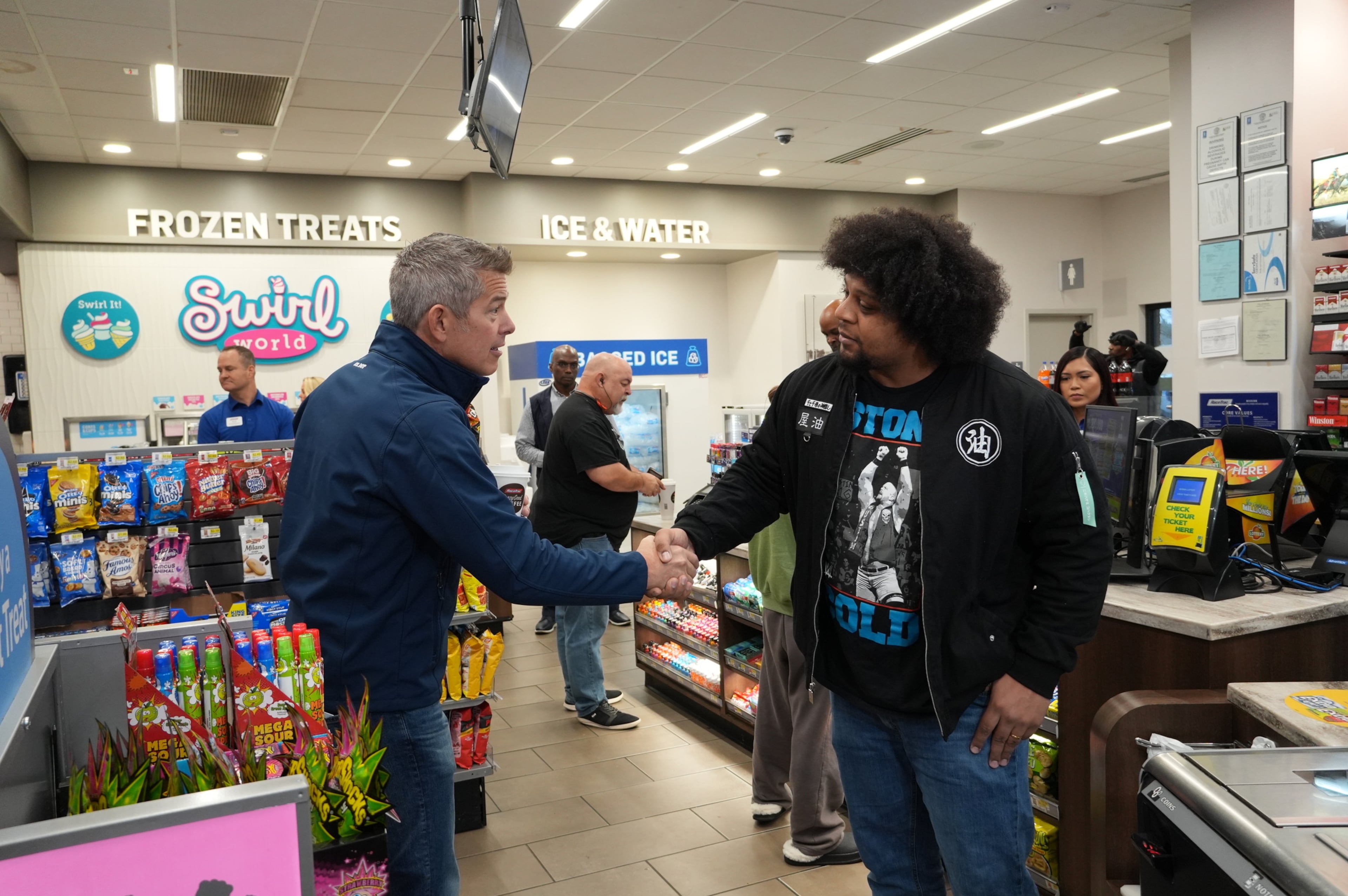Opinion: Maintaining legitimacy of election is paramount
The 2020 election is about far more than the victory of Vice President Joe Biden or the reelection of President Donald Trump, or even who controls Congress. This election represents the potential to either preserve the integrity of our democratic process or see it severely undermined.
Though we belong to different political parties, we’ve joined with more than 40 other political, government, and civic leaders to form the National Council on Election Integrity, launching our “Count Every Vote” campaign for a safe, fair, and accurate vote count this year. Because of the coronavirus pandemic, the casting and counting of votes will take longer than usual this year. Perhaps much longer. We’ve seen the long early-voting lines across the country, and heard the messages from election officials that full vote counts could, in some places, take up to a week. That’s OK.
What’s not OK are those who want to delegitimize the system itself. There have been dozens of direct attacks on the integrity of voting by mail, including by the president. Yet there’s a broad bipartisan consensus that doing so is safe, secure, effective, and does not benefit one party over the other. Five states — red and blue — have conducted elections entirely by mail for years, and our military has voted almost entirely by mail since the Civil War. All the while, instances of voter fraud are incredibly rare. An analysis of fraud cases compiled by the conservative Heritage Foundation shows that just 0.0001% of the 470 million votes cast between 2010 and 2018 involved possible fraud. That’s approximately one case out of every million votes cast.

What is true about mail-in ballots is that more voters than ever before are choosing this method to vote this year. In Georgia alone, the increase in mail-in absentee votes is expected to be 10 times what it was in 2016, with possibly as many as 4 of every 10 Georgians using this method to vote. The nationwide increase in mail-in absentee ballots means we may not have results on election night, or even for days afterward. After polls close on Election Day, we all need to exercise patience to let election officials do their jobs. One recent poll found that three-quarters of Americans agree we should prioritize counting every vote over rushing to declare a winner.

To ensure a smooth and accurate count, states should make it as easy as possible to count votes accurately, and listen to election officials when they say they need counting deadlines adjusted this year. Congress should also move swiftly to help facilitate such an accurate vote. Legislation that has been introduced in the Senate by Sen. Marco Rubio, R-Fla., and in the House by Rep. David Price, D-N.C., has been endorsed by 40 election experts to extend vote-tallying deadlines, which are rightly labeled as arbitrary. This commonsense bill to preempt a constitutional crisis deserves bipartisan consideration. Why won’t Senate Majority Leader Mitch McConnell, R-Ky., or House Speaker Nancy Pelosi, D-Calif., allow it to be considered?
Several states' primary elections earlier this year — including Georgia, Pennsylvania, and South Carolina — offered stark examples of what could go wrong with voting during a pandemic. Lines up to five hours long were a result of a variety of factors: a sharp decrease in the number of open polling locations due to a lack of poll workers, social distancing measures, problems with equipment, and a variety of other issues. Concerningly, reports of similarly long wait times are already emerging for early voting in Georgia’s general election and other states as well. The bipartisan Presidential Commission on Election Administration has recommended that voters wait no more than 30 minutes to cast a ballot. While excitement from people eager to cast their votes should be celebrated, lines that don’t move quickly can be barriers to the exercise of citizens' civic duty in Georgia and any other state. We hope that many voters will continue to vote early to help avoid long lines on Election Day on November 3.
No matter who wins the presidency or congressional races, all Americans must have faith in their system, and every vote cast in accordance with applicable laws must be counted. To preserve the integrity of our elections, we put country over party to support the constitutional processes that make our system strong. Together, we can ensure that this election, though fraught, is just another in the long line of challenges we self-governing Americans have successfully weathered and overcome.
Democrat Mary Landrieu is a former U.S. senator from Louisiana. Republican Zach Wamp is a former congressman from Tennessee. Both are members of the National Council on Election Integrity.

